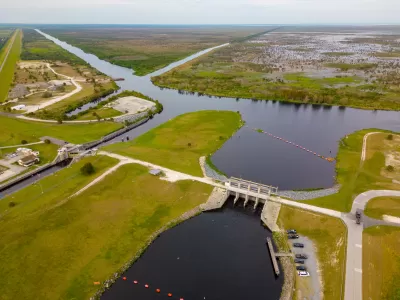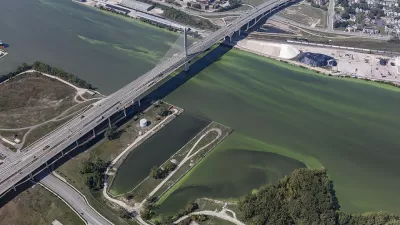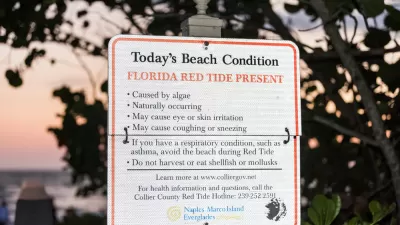The new Everglades strategy marks a “cultural shift” for the U.S. Army Corps of Engineers: rather than focusing primarily on flood control, the new plan seeks to balance the needs of the entire watershed, including limiting the spread of toxic algae.

The 730-square-mile Lake Okeechobee lies at the heart of the Florida Everglades. For decades, the watershed has been under threat, but an ambitious $21 billion federal and restoration effort seeks to change that, including a new management plan. Amy Green reports for Inside Climate News that a new plan, called the Lake Okeechobee System Operating Manual, was implemented earlier this month, and with it, a significant change in approach. Tim Gysan, LOSOM project manager for the U.S. Army Corps of Engineers told Green that, following a recent restoration of the 143-mile earthen dike around the lake, “the plan is designed to more equitably balance the needs of the watershed and stakeholders tied to it, rather than prioritizing flood control above all else.”
One particular concern is toxic algae, which has been a problem for Lake Okeechobee over the last several years and, when water is discharged during times of high water, the surrounding estuaries. “The noxious blooms have choked rivers, sullied beaches, sickened Floridians and left wildlife belly-up,” Green reports. With the warm temperatures brought by climate change, that problem is only expected to get worse. “Now that a $1.8 billion rehabilitation of the dike is complete, the Army Corps will have more flexibility to hold more water in the lake, reducing the harmful discharges.”
FULL STORY: New Lake Okeechobee Plan Aims for More Water for the Everglades, Less Toxic Algae

Maui's Vacation Rental Debate Turns Ugly
Verbal attacks, misinformation campaigns and fistfights plague a high-stakes debate to convert thousands of vacation rentals into long-term housing.

Planetizen Federal Action Tracker
A weekly monitor of how Trump’s orders and actions are impacting planners and planning in America.

Chicago’s Ghost Rails
Just beneath the surface of the modern city lie the remnants of its expansive early 20th-century streetcar system.

Bend, Oregon Zoning Reforms Prioritize Small-Scale Housing
The city altered its zoning code to allow multi-family housing and eliminated parking mandates citywide.

Amtrak Cutting Jobs, Funding to High-Speed Rail
The agency plans to cut 10 percent of its workforce and has confirmed it will not fund new high-speed rail projects.

LA Denies Basic Services to Unhoused Residents
The city has repeatedly failed to respond to requests for trash pickup at encampment sites, and eliminated a program that provided mobile showers and toilets.
Urban Design for Planners 1: Software Tools
This six-course series explores essential urban design concepts using open source software and equips planners with the tools they need to participate fully in the urban design process.
Planning for Universal Design
Learn the tools for implementing Universal Design in planning regulations.
planning NEXT
Appalachian Highlands Housing Partners
Mpact (founded as Rail~Volution)
City of Camden Redevelopment Agency
City of Astoria
City of Portland
City of Laramie





























